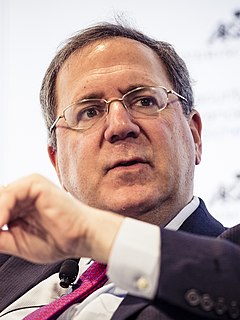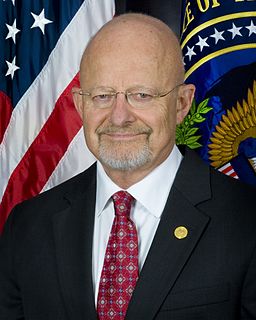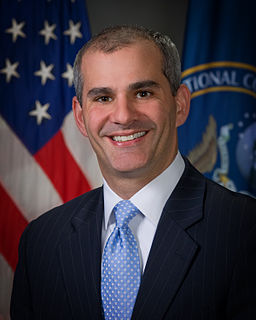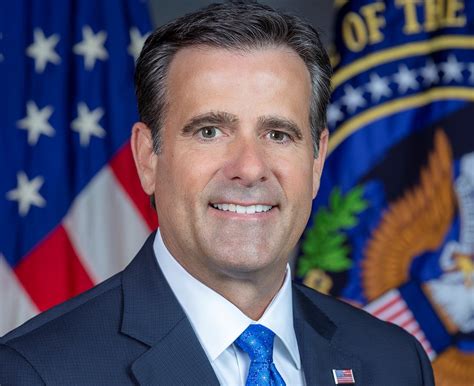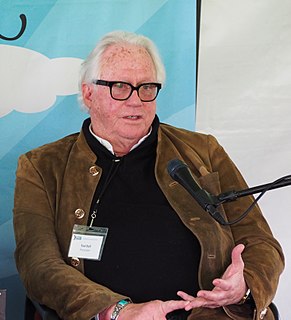Top 968 Cyber Warfare Quotes & Sayings
Explore popular Cyber Warfare quotes.
Last updated on April 14, 2025.
It ends a 40-year ban on exporting U.S. oil. It's changed - it's included in its cyber-security legislation - that says to private companies, hey, if you share with us your data on your cyber-attacks, your potential cyber-attacks, we'll give you liability protection. And they authorized a health care program for 9/11 responders for 75 years to cover the length of their lifespans.
The FBI has built up substantial expertise to address cyber threats, both in the homeland and overseas. Here at home, the FBI serves as the executive agent for the National Cyber Investigative Joint Task Force (NCIJTF), which joins together 19 intelligence, law enforcement, and military agencies to coordinate cyber threat investigations.
When it comes to cyber warfare, we have more to lose than any other nation on earth. The technical sector is the backbone of the American economy, and if we start engaging in these kind of behaviors, in these kind of attacks, we're setting a standard, we're creating a new international norm of behavior that says this is what nations do. This is what developed nations do.
We reject techniques like torture regardless of whether they're effective or ineffective because they are barbaric and harmful on a broad scale. It's the same thing with cyber warfare. We should never be attacking hospitals. We should never be taking down power plants unless that is absolutely necessary to ensure our continued existence as a free people.
The attack on the law firms and attacks like that are industrial espionage, searching for copyrighted materials to lift and so on; it's not quite the same as cyber-warfare. They are regarded as related. The Chinese are trying to steal an economic march on the West, which is a consequence of the fact that we outsourced all of our manufacturing to China in the 1990s.
All of the threat streams that we have, from all aspects, militarily, economically, supply chain issues, foreign investment, technologically, cyber issues, cyber warfare, 5G, telecommunications - China is in all of those and they are the only country to be in that space and the only country that threatens America supremacy.
We need to make sure that whenever we're engaging in a cyber-warfare campaign, a cyber-espionage campaign in the United States, that we understand the word cyber is used as a euphemism for the internet, because the American public would not be excited to hear that we're doing internet warfare campaigns, internet espionage campaigns, because we realize that we ourselves are impacted by it.
I've made a profound transformation. I've fashioned some cyber-underwear. I'm not scared of anything! Actually, I am scared of a few things. Cyber world is a world of adventure, a new galaxy. I'm big on adventure. But I don't assume that just because the word cyber is being used as a prefix, doesn't give it anymore value or credence. Cyber relationships have the illusion of intimacy, sometimes with the absence of intimacy. Is it better to have a conversation in a café or on the telephone?
The U.S. has the most advanced cyber-weaponry on the planet, and t if you look at the U.S. from the perspective of the Chinese People's Liberation Army, which runs most of its cyber activities, they look at you and they see Google and Facebook - the two largest depositories of personal data in the world - and they see the reach of the National Security Agency, which has huge digital capacity to know what is going on around the world. So the Chinese would see cyber as an un-level playing field, because the U.S. holds all sorts of advantages.
When Clinton traveled to Russia, known for its hackers and cyber warfare against the United States and other democracies, she didn't bother to tap into the government-protected email system provided by the State Department. Instead, she continued to communicate through her personal, home-brewed and unsecured server.
Over the last years we've seen the consequences of the Obama-Clinton foreign policy. Leading from behind is a disaster. We have abandoned and alienated our friends and allies, and our enemies are stronger. Radical Islam is on the rise, Iran's on the verge of acquiring a nuclear weapon, China is waging cyber warfare against America.
I think cyber security, cyber warfare will be one of the biggest challenges facing the next president, because clearly we're facing at this point two different kinds of adversaries. There are the independent hacking groups that do it mostly for commercial reasons to try to steal information that they can use to make money.
Cyber Leader: Daleks, be warned. You have declared war upon the Cybermen. Dalek Sec: This is not war - this is pest control! Cyber Leader: We have five million Cybermen. How many are you? Dalek Sec: Four. Cyber Leader: You would destroy the Cybermen with four Daleks? Dalek Sec: We would destroy the Cybermen with one Dalek! You superior in only one respect. Cyber Leader: What is that? Dalek Sec: You are better at dying.
One of the problem with cyber is that it lends itself to preemptive action. Your assets in cyber-warfare are your opponents' vulnerabilities, therefore in order to quantify your assets you have to be able to ascertain how vulnerable your opponents are and that involves pre-emptive exploration of your opponents' networks. So in that sense it lends itself to some pretty nasty stuff.

